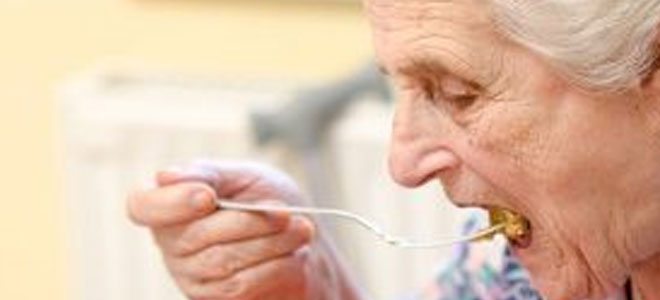Call now to speak
to an attorney
Nursing Home Malnutrition
The perils of malnutrition in nursing homes are far-reaching, and in Arizona, this issue is increasingly alarming. The silent epidemic of malnutrition results from either a lack of proper food and water supply or failure to address pre-existing conditions that limit the nursing home or group home resident's ability to eat or drink. If you have a loved one in a nursing home and you suspect they might be a victim of neglect, malnutrition, or dehydration, Solomon & Relihan are here to help.

Malnutrition – Arizona Nursing Home Abuse and Neglect Lawyers
Defining Malnutrition and its Types
Malnutrition includes deficiencies, excesses, or imbalances in an individual’s intake of calories and nutrients. It manifests in two forms: undernutrition, which results in a resident being underweight for their height or age, and overnutrition, leading to obesity or overweight. While undernutrition is more prevalent in nursing homes, overnutrition can occur, albeit rarely.
Effects of Malnutrition on Nursing Home Residents
The negative health implications of malnutrition in nursing homes are wide-ranging, especially for the elderly and disabled who are already susceptible to illness and drastic physical and mental changes. They include:
– Decreased body weight and associated health problems like osteoporosis, thinning skin, low immunity, anemia, and chronic fatigue
– Weakened immune system leading to frequent infections and slow healing
– Increased frailty and sensitivity, leading to a higher risk of illnesses and injuries
– Increased risk factors for non-communicable diseases such as diabetes, hypertension, heart disease, and cancer
– Vitamin deficiencies leading to conditions like scurvy and bone and joint problems
– Behavioral changes and cardiac alterations
– Aggravation of existing medical conditions, which can heighten residents’ morbidity and mortality risks
Identifying Malnutrition: Warning Signs
Malnutrition often impacts a resident’s physical, mental, and emotional well-being. Below are some symptoms to watch out for:
– Weight loss, swollen face or abdomen, depleted fat and muscle, sunken eye sockets, or prominent bones
– Fatigue, weakness, irritability, inattention, apathy, or depression
– Swallowing difficulties, cognitive impairment, or frequent infections
– Dry skin, brittle hair, lesions, canker sores, reduced appetite, or poor healing
Physical Conditions That Can Contribute to Malnutrition
Several physical conditions can make eating or drinking challenging, leading to malnutrition:
– Dysphagia, which causes difficulty swallowing
– Dental issues, causing pain or difficulty chewing
– Chronic diseases, infections, and medications that can reduce appetite or complicate eating
– Mental health issues that can lead to meal avoidance or poor appetite
Underlying Causes of Malnutrition in Nursing Homes
Common causes of malnutrition and dehydration in nursing facilities include inadequate supervision, lack of assistance for residents who require help eating or drinking, unappetizing meals, unpleasant or unsanitary dining environments, failure to address health conditions, social isolation, and intentional neglect.
In some instances, malnutrition is a result of understaffing, poor training, lack of individualized care, substandard food service practices, cost-cutting measures, poor medical and oral care practices, and absence of policies and procedures to prevent intentional neglect.
Filing a Case Against Nursing Home Neglect
If a nursing home fails to provide proper food and water or prevent acts of abuse and neglect leading to malnutrition, it may be liable for nursing home abuse. As evidence, you can present medical records, testimonies, witness accounts, and incident reports.
Compensation for Nursing Home Neglect
Seeking legal action against a negligent nursing home can help you recover financial compensation for medical bills, emotional and physical suffering, loss of quality of life, and even wrongful death.
The Role of a Nursing Home Abuse and Neglect Lawyer
Victims and their families often struggle to hold negligent nursing homes accountable without legal assistance. That’s where a nursing home abuse attorney steps in. They can help investigate the case, gather evidence, file a claim, negotiate settlements, and more.
Contact Solomon & Relihan now for a free consultation to find out more and discuss the quality of care of a loved one in a nursing home.
We’re committed to defending victims of malnutrition in nursing homes and will do our utmost to ensure families secure fair financial compensation. Remember, every nursing home resident has the right to adequate food and water. Any nursing home that neglects these rights should face the full force of the law.

